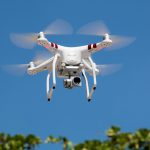Immediate advantages of computing innovations in marketing
Computing innovations offer substantial marketing technology benefits that transform how businesses engage customers. A primary advantage is elevated efficiency and personalisation driven by automation and AI in marketing. These tools automate routine tasks, from email campaigns to social media posting, freeing teams to focus on strategic creativity. AI powers hyper-personalised content, making marketing messages more relevant and appealing.
Real-time data analytics is another crucial benefit, enabling marketers to make informed decisions on the fly. By harnessing data-driven marketing, companies can analyze customer behaviour continuously, adjusting campaigns instantly to improve performance and customer satisfaction.
In parallel : Top channel manager experts to boost your rental business
Moreover, leveraging AI in marketing provides competitive gains through predictive modelling and optimisation tools. These allow marketers to forecast trends, anticipate customer needs, and allocate budgets more wisely, giving businesses an edge in crowded markets. Altogether, computing innovations streamline marketing processes, enhance customer targeting, and improve return on investment significantly.
Practical steps for integrating computing innovations into marketing strategies
Successfully implementing marketing technology requires thoughtful planning and clear objectives. Start by thoroughly assessing your current marketing processes to identify gaps where automation and AI can add value. This initial evaluation ensures the right tools are selected, avoiding costly mismatches. Building a robust data infrastructure is essential; without reliable data storage, integration, and processing capabilities, the benefits of marketing automation and data-driven marketing remain limited.
Have you seen this : What Impact Does the Latest Computing Technology Have on Marketing Strategies?
Next, prioritize training marketing teams to embrace these new technologies. Educational programs and hands-on sessions help reduce resistance and build proficiency in tools that enhance efficiency. For instance, understanding how to interpret AI-generated insights enables marketers to make better decisions swiftly.
Finally, approach digital transformation as an ongoing journey, not a one-off project. Continuously refine your technology stack and workflows in response to analytic feedback. This adaptive stance maximizes the returns on investments in marketing technology benefits and positions your organisation for sustainable growth in a competitive landscape.
Immediate advantages of computing innovations in marketing
The marketing technology benefits of computing innovations drastically improve campaign effectiveness and operational efficiency. A key advantage is automation paired with AI in marketing, which elevates efficiency by handling repetitive tasks such as segmentation and campaign scheduling. This automation enables marketers to focus on crafting highly personalised messages that resonate with individual customers, enhancing engagement and conversion rates.
Real-time analytics form the backbone of data-driven marketing, giving marketers insights into customer behaviour as it happens. This immediacy allows for rapid adjustments to campaigns, tailoring offers and content dynamically to maximise impact and customer satisfaction.
In addition, AI in marketing introduces predictive modelling and optimisation tools that analyse trends and customer data to forecast future behaviours. These technologies provide competitive gains by enabling precise budget allocation and targeted marketing strategies, directly supporting business growth in crowded markets. Collectively, these elements showcase how computing innovations are reshaping marketing into a more responsive, personalised, and efficient discipline.
Immediate advantages of computing innovations in marketing
Computing innovations deliver clear marketing technology benefits, primarily through elevated efficiency and improved personalisation powered by AI in marketing. Automation handles repetitive tasks such as campaign management and customer segmentation, allowing marketers to concentrate on crafting targeted messages. This leads to more relevant content tailored to individual preferences, boosting engagement significantly.
Real-time data analytics form the cornerstone of data-driven marketing, giving instant insights into customer behaviours and campaign effectiveness. Marketers can rapidly adjust strategies based on live data, reducing wasted spend and enhancing customer experiences. For example, by monitoring click-through rates as campaigns run, adjustments can be made immediately to maximise results.
Competitive advantages emerge from predictive modelling and optimisation tools within AI in marketing. These systems forecast trends and customer needs by analysing datasets, enabling smarter budget allocation and strategic planning. Together, these capabilities position businesses to outperform competitors by making informed, timely decisions that increase marketing impact and return on investment.
Immediate advantages of computing innovations in marketing
Computing innovations deliver substantial marketing technology benefits, foremost among them elevated efficiency and personalisation driven by AI in marketing and automation. Automating repetitive tasks like customer segmentation and content scheduling streamlines workflows, allowing marketers to focus on crafting targeted campaigns that speak directly to individual preferences. This tailored approach improves engagement and conversion rates substantially.
Real-time data analytics, central to data-driven marketing, provide marketers with instant insights into campaign performance and customer behaviour. This empowers quick, informed decisions to optimise campaigns on the fly, enhancing effectiveness while reducing wasted resources. For example, monitoring live click-through rates guides immediate content adjustments to better resonate with audiences.
Furthermore, AI in marketing enhances competitive advantages through predictive modelling and optimisation tools. By analyzing trends and customer data, these tools forecast future behaviours, enabling smarter budget allocation and more strategic marketing plans. Together, these innovations yield a responsive, personalised, and highly efficient marketing function that drives measurable business impact.



